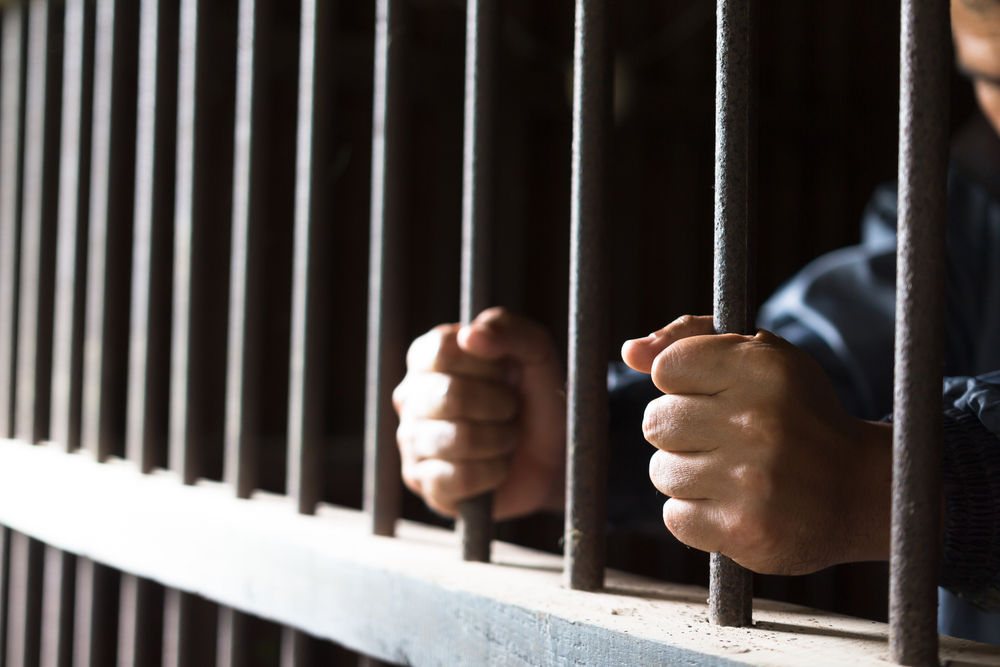
HALIFAX — More than eight years after fleeing the country, a Nova Scotia man who authorities in Colombia allege is a former drug kingpin was handed an 11-year prison sentence for manslaughter in Nova Scotia Supreme Court on Monday.
Steven Skinner was sentenced in the April 10, 2011 death of Stacey Adams in Lake Echo, N.S. The 46-year-old was given credit for time already served and as a result will serve only six more years of the sentence.
In accepting the joint sentencing recommendation, Justice Jamie Campbell noted it represented a compromise because both the Crown and defence saw risks associated with their cases.
“The result here is one that is appropriate,” said Campbell. “It doesn’t bring closure, it doesn’t bring a sense of relief … but it is justice in that legal sense.”
Skinner, who had been charged with second-degree murder in the case, pleaded guilty earlier this month to the manslaughter charge after a deal was struck between Crown prosecutors and his defence lawyer just prior to his trial.
According to the agreed statement of facts read in court, Skinner had flown from Vancouver to Moncton, N.B., under a false name on April 6 and 7. He was then driven to a residence in Lake Echo near Halifax, despite a provincial court recognizance requiring him to stay away from Nova Scotia.
He spent the night of April 9 drinking and using cocaine with the home’s owners, Jeffery Belanger and Crystal Stephens. At one point, court was told Skinner donned a bulletproof vest and Belanger shot at Skinner multiple times with a .22-calibre handgun in the home’s garage.
Adams, who wasn’t expected, arrived at the residence with another man around 11 a.m. the next morning and was subsequently shot by Skinner with a .44-calibre handgun during a verbal altercation.
“As he (Skinner) picked up the handgun, Adams reached to his side and stood up,” Crown prosecutor Robert Kennedy told the court.
“Being heavily intoxicated, Skinner believed Adams intended to shoot him. Skinner then fired three times at Adams with the handgun, striking Adams in the left wrist and the torso. Adams died from these gunshot wounds.”
Skinner moved the body to Adams’s car, which was parked outside, then cleaned up the blood that was left on the floor of the residence. Police later found a 9-millimetre handgun that belonged to Adams in the car.
Skinner was later picked up by a friend and taken back to Moncton, where he threw the .44-calibre gun into the Petitcodiac River. The weapon was later recovered by police.
He flew back to Vancouver, again under a false name, and left the country the next day for Mazatlan, Mexico. Skinner remained at large until he was arrested by Venezuelan law enforcement on Margarita Island in May 2016, then extradited to Canada in 2017.
Choking back tears, Gloria Adams read her victim impact statement in court as an expressionless Skinner, dressed in a white shirt and grey suit, stared ahead.
She said that her son had just turned 20, and described him as “full of life” and “energetic, caring and comical.
“Knowing that my son would still be alive if the accused had abided by his bail conditions to stay out of the province of Nova Scotia will forever haunt me,” said Adams. “The loss of my son has robbed me and my family of the most important person we all knew. This is the life sentence I was given.”
Outside court, Adams told reporters she didn’t agree with the statement of facts in the case, and she believes the sentence is unjust.
“I’m embarrassed today,” she said. “I’m ashamed today. My son was a good guy and volumes of people will back that up.”
However, Kennedy said outside court that the sentence was appropriate in that it was just above the normal range for manslaughter, which is between six and 10 years. He said the credit for time served was also appropriate noting that part of Skinner’s incarceration was in squalid conditions in Venezuela.
Monday’s sentencing was part of a legal saga that saw Colombian authorities issue a press release last September alleging Skinner, a former MMA fighter, organized a drug trafficking network called Morfhox with notorious drug kingpin Daniel “El Loco” Barrera.
The Office of the Attorney General of Colombia said that along with an accomplice — whom Skinner allegedly later killed before fleeing to neighbouring Venezuela — Skinner recruited drug mules to smuggle cocaine to Canada, the United States and Europe.
An international warrant was issued for his arrest shortly after Adams was found dead. The RCMP worked with Venezuelan authorities for more than a year before Skinner was arrested.